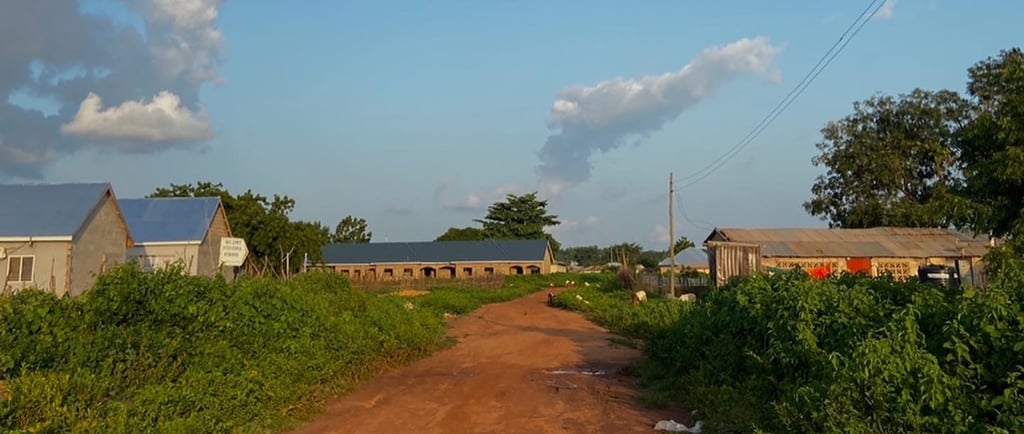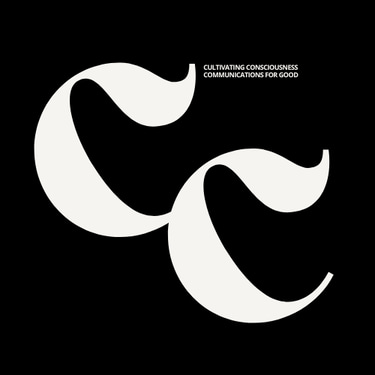Conceptualizing Community-Based Food Security - A Look into Ghana
A research project proposal integrating community-building and relationships into food security efforts
COMMENTARY
Kaden Theisen
11/20/20245 min read


Food security is a present issue, and is apparent in many different forms across the globe. The concept of "community" is often overlooked in our bustling and busy lives, where we are made to focus on working for our own food supply. If we reduce this concept down to its core, we are exchanging energy and income for food, which is a necessity for all forms of life. This is not necessarily a new concept, but for third-world and low-income countries, individuals are impacted more by this concept than others.
While traveling across Ghana and residing in the Northern region for some time, it became apparent to me how intertwined community and relationships are in everyday life. A polarizing difference from what can be experienced in countries like the United States which exist in an age of high mass consumption, where goods are produced, imported, exported, and purchased at rapid rates. It feels as if there is emphasis on producing and consuming over relationship and community-building. After observing the importance of community in Ghana, I prepared a research project proposal which ties these findings together, creating a proposed utopia-like state in which our consumerism mindset is set aside and exchanged for valuable relationships where food and resources can be obtained in sustainable and dependable methods. Here, I present my research proposal:
As I involved myself in Ghana’s culture, economy, and environment throughout our time in the country, one aspect that makes the country thrive became quite apparent to me; the relationships between one another, and the communities that individuals involve themselves in. This is a divergent lifestyle from the individualism we see and are inherently a part of in Western culture. The compassion that people have for each other makes me want to believe that this ideology can be taken a few steps further to tackle larger issues that our world is faced with. Here I ask the question, can the formation of communities and relationships in Ghana, specifically in the market and agricultural sectors, be used to promote and influence sustainable food security for a fulfilling life?
This large and over-arching question comes with a few sub-questions that are necessary to address as well. Can the relationship-based values in business and the economy lead to an alternative economic system away from a profit-driven motive, which places the needs of people first? Can a relationship-based economic system encourage more of a commons-based or sharing economy? Can an alternative economy and relationships in this sense be mirrored and applied to other countries, or is the world too different and widespread to simply apply this thinking everywhere? What role does culture play in community-building and relationship-based economic systems? Does the region or season influence these relationships, especially when it comes to agriculture and the ability to sell in markets? Are there exclusionary aspects to communities and relationships, and would some people be more privileged than others in these communities? What role does corruption in governments and politics play, and would this stop a community-based system from providing for the needs of the people?
This kind of question suggests that I need to involve myself in the community and culture existent in Ghana, shying away from structured and quantitative research methodologies and paradigms. The methodology I would choose to utilize includes qualitative interviews, which would be semi-structured to have an idea of the information I need to gather, but not risk imposing my own conclusions or missing any vital information that a more casual interview could provide. Participant observation would be necessary, taking into account the things that are said around me, my own involvement in markets, observations of farms, and ultimately observing the effectiveness of relationships. I focus on postcolonial indigenous research techniques would be beneficial, avoiding any inherently colonizing research methods and instead embracing the culture and people around me. This could include familiarizing myself with local languages, and using them when I can to avoid any sort of power imbalance and allow accessibility for the people I speak with. I would also utilize pictures and journals I may come across, as well as talk circles and casual conversations with local individuals.
My research would involve more of an interpretive paradigm to “understand and describe human nature”, as well as an indigenous research paradigm to “challenge deficit thinking and pathological descriptions of the formerly colonized and reconstruct a body of knowledge that carries hope and promotes transformation and social change among the historically oppressed” (Chilisa 50). These chosen paradigms may be altered if I am unable to achieve any findings.
The readings that have influenced my question include Professor Salifu’s Language and Related Stumbling Blocks to Effective Participatory Development, which emphasizes language in development communication and the importance of learning local languages. David Millar’s Traditional African Worldviews from a Cosmovision Perspective and When the Spirits Speak have influenced this question as well, speaking to collectivism versus individualism, the use of common property, and a holistic worldview where man works not only together but with the Earth, emphasizing “wholeness”. Bagele Chilisa’s Indigenous Research Methodologies has greatly influenced the formation of my questions and the methodologies necessary to research them.
An estimated time frame to achieve this kind of research is difficult to conceptualize. If I want to effectively involve myself in and become familiar with the local languages and culture, this research would more than likely take a few years, possibly more than three. I would like to conduct research at different times of the year, in different seasons, and different regions. This would also be dependent on indigenous notions of time, as my Westernized views on time do not align with how time is perceived in traditional communities in Ghana. I would need to consider multiple calendars from different indigenous communities, orientation around Market Day cycles as this is an important day that time can revolve around, how seasons are conceptualized, etc. As discussed, the Frafra calendar includes a three-day cycle revolving around Market Day. Some communities are dependent on the different seasons for agricultural prosperity, while communities like the Ashanti can grow year-round because of its abundant rainy seasons. Because of these variables, I would need to research how time is conceptualized in different communities and base my research and involvement on this.
The kinds of individuals I would like to interview are widespread, including community leaders and activists, professors and teachers in development, individuals who participate in traditional versus contemporary economies, individuals from different regions, laborers involved in market and agricultural sectors, market women and women’s groups as it is important to address gendered differences in Ghana’s culture, various farmers, widows and widow groups, soothsayers, ancestors through soothsayers to expand my research beyond just present generations, the Diviner, etc. I would be sure to consult the soothsayer before doing research in traditional communities to maintain respect for the ancestors and avoid the imposition of power. I would need to differentiate between market communities versus village communities, and the different people involved. This widespread variety of individuals to interview would go hand-in-hand with my proposed timeframe as well as indigenous notions of time.
Community entry for a question of this scale may be difficult, but I would begin by contacting the individuals we have met and communicated with already. I would reach out to UDS and academic figures through this tactic. I would then work to communicate with the people around me, as well as other researchers to establish a direction and connections with individuals who can help me progress in my research.
I would establish rapport by familiarizing myself with local languages, utilizing less of a structured interview process, and using interview guides rather than a schedule. I would emphasize giving a voice to those I am interviewing, making sure to allow them to ask questions to me as well, and being clear with my intentions for the interviews. Overall, I would prioritize respect and mindfulness regarding my interactions. I would be conducting research in a way that utilizes my involvement and participation in culture and community, rather than imposing my ways of life or any sort of action that would take away from the voice and power of these people. I would make sure to ask for permission before conducting any sort of interview and especially before recording and establish whether or not the subject would prefer to be anonymous in a publication.


